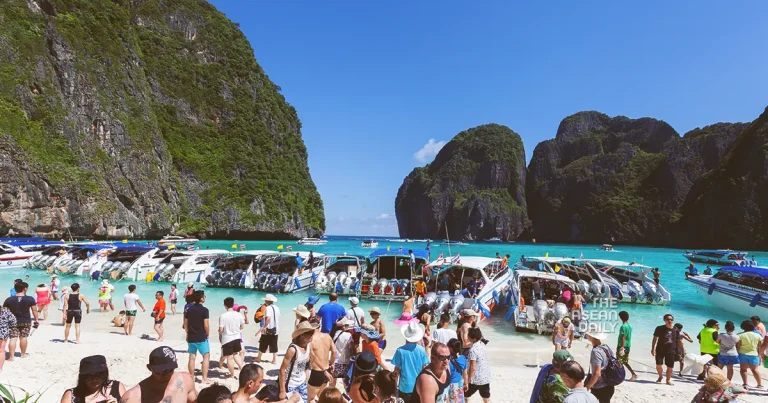1-9-2023 (BANGKOK) Thailand’s newly appointed Prime Minister, Srettha Thavisin, has unveiled plans to waive visa requirements for tourists from China and India. The proposal has sparked hopes of reviving the country’s sluggish economy, but concerns about over-tourism and environmental damage have also been raised.
Tourism operators and analysts are optimistic that the visa waiver will accelerate the recovery of the industry and help Thailand achieve its tourist arrival targets. The lengthy visa application process has been identified as a bottleneck in tourism export.
According to market analysts at Kasikorn Securities, Chinese visitors have faced an average waiting time of nearly 15 days to obtain a tourist visa for Thailand in the first half of this year. The visa allows for a stay of up to 60 days and requires individual application. Both Chinese and Indian tourists can also apply for a visa on arrival, which costs THB2,000 (US$57) and allows for a 15-day stay, but there are several requirements to meet.
The government hopes to implement the visa waiver scheme before the peak tourist season begins in November, providing Chinese and Indian tourists with a hassle-free travel experience. Tourism Council of Thailand President Chamnan Srisawat believes that simplifying the visa process will increase the number of tourists quickly.
Thailand aims to welcome up to 30 million international tourists this year, three times the number of arrivals in 2022 but still lower than the 40 million received in pre-COVID 2019. The country’s tourism sector is gradually recovering from the pandemic’s impact, which severely damaged the economy and disrupted global travel.
Prime Minister Srettha emphasized the importance of tourism in the country’s short-term economic revival. He revealed that discussions have been held with related sectors regarding development plans, support, and security for the tourism industry. Chinese diplomats in Thailand have expressed support for the proposed visa scheme.
While China has lifted pandemic-related restrictions on overseas group tours since January, economic challenges in recent months have led to hesitations among Chinese consumers regarding international travel. Despite this, analysts believe that Thailand is well-positioned to attract Chinese tourists, especially if the visa exemption is implemented promptly.
Thailand was the most popular foreign tourism destination for Chinese travelers during the first half of 2023, with 15.4 million international tourists visiting the country, including approximately 1.9 million from China. Although these numbers are lower than pre-pandemic levels, tourism operators anticipate a positive outlook for the industry, which contributes billions of dollars to Thailand’s economy each year.
Thailand’s tourism revenue in 2019 reached USD86.3 billion, accounting for approximately 18 percent of its GDP. Chinese tourists accounted for nearly 30 percent of the international tourist arrivals, while Indians made up around 5 percent. The Indian market remains significant for Thailand’s tourism, and with a large population, there is potential for increased visits from India.
To stay competitive, Thailand should focus on sustainability efforts and develop medium to long-term plans to ensure it remains an attractive destination for socially conscious travelers. Market observers caution that the visa waiver could lead to over-tourism and environmental damage, issues that were already present before the pandemic. Stakeholders are urged to consider strategic approaches that stimulate the economy while benefiting local communities and the environment.
Prime Minister Srettha has engaged in talks with Airports of Thailand Plc to discuss immigration and the capacity of terminals and runways in preparation for increased arrivals. The government hopes that tourism will generate significant income during the approaching high season. However, there are concerns about the country’s capacity to handle a potential influx of tourists and the associated environmental impact.
While the visa waiver plan raises some cautionary notes, Thailand’s urgent need to recover from pandemic-induced losses underscores the importance of strategic thinking to balance economic growth with environmental sustainability.




